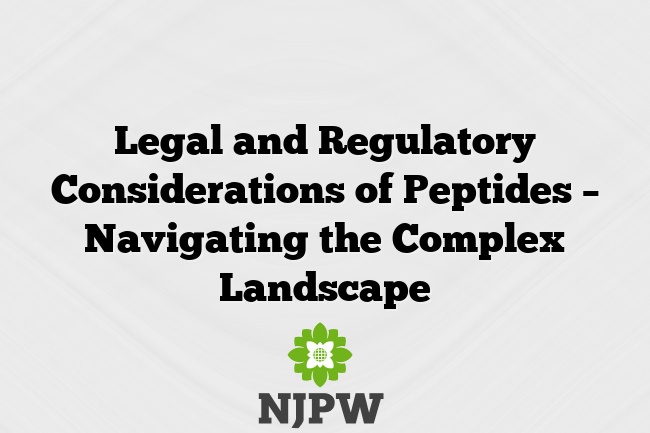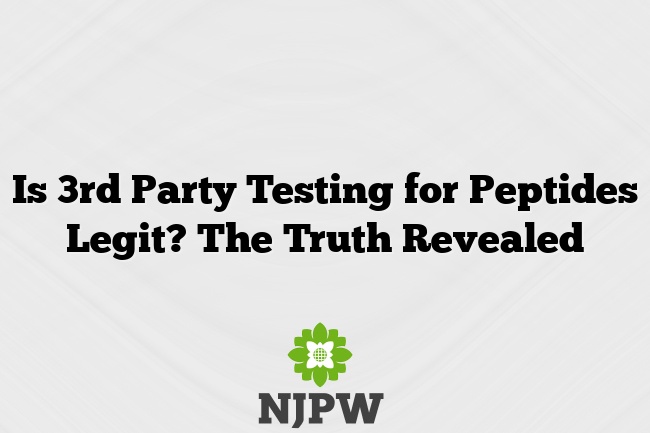Legal and Regulatory Considerations of Peptides – Navigating the Complex Landscape

Peptides are a fascinating and rapidly evolving field, with far-reaching implications across various industries. As these unique molecular compounds continue to capture the attention of scientists, innovators, and regulators alike, navigating the complex legal and regulatory landscape surrounding peptides has become increasingly crucial.
| Key Peptide Considerations | Description |
|---|---|
| Peptide Regulations | Peptides are subject to a multifaceted regulatory framework, with oversight from agencies like the FDA, DEA, and EPA, among others. |
| Peptide Compliance | Ensuring compliance with relevant laws and regulations is essential for any organization working with peptides. |
| Peptide Legality | The legal status of peptides can vary widely, depending on factors such as their intended use, source, and chemical composition. |
In this comprehensive guide, we’ll explore the legal and regulatory considerations surrounding peptides, providing insights and best practices to help navigate this complex landscape.
Navigating the Legal Landscape of Peptides
The legal framework governing peptides is multifaceted and can vary significantly depending on the specific peptide, its intended use, and the jurisdiction in which it is being produced, distributed, or used. Understanding the peptide legal landscape is crucial for any organization or individual working in this field.
One of the key considerations is the controlled substance status of a particular peptide. Some peptides may be classified as controlled substances, subject to strict regulations and licensing requirements. Failure to comply with these regulations can result in severe legal consequences.
Regulatory Oversight of the Peptide Industry
The peptide industry is subject to oversight from a variety of regulatory agencies, each with its own set of rules and guidelines. These agencies, such as the FDA, DEA, and EPA, play a crucial role in ensuring the safety, quality, and legality of peptide-related activities.
Understanding the specific regulatory requirements for your particular peptide and its intended use is essential. This may include obtaining the necessary licenses and permits, adhering to good manufacturing practices, and implementing robust quality control measures.
Ensuring Compliance in Peptide Production and Distribution
Maintaining compliance in the production and distribution of peptides is a critical aspect of navigating the legal and regulatory landscape. This involves a comprehensive understanding of labeling and packaging requirements, as well as the implementation of effective supply chain security measures to prevent counterfeiting and other illicit activities.
Proper documentation and record-keeping are also essential, as regulatory agencies may require detailed information about the sourcing, manufacturing, and distribution of peptides.
Understanding Labeling and Packaging Requirements
The labeling and packaging of peptides is subject to strict regulations, designed to ensure transparency, safety, and compliance. This includes requirements for ingredient lists, potency claims, and warning statements, among other elements.
Failure to adhere to these labeling and packaging guidelines can result in legal and regulatory consequences, as well as potential safety risks for end-users.
Obtaining the Necessary Licenses and Permits
Depending on the nature of your peptide-related activities, you may be required to obtain various licenses and permits. This could include manufacturing licenses, distribution permits, and research authorizations, among others.
Navigating the licensing and permitting process can be complex, and it’s essential to stay up-to-date with the evolving requirements in your specific jurisdiction.
Staying Up-to-Date with Evolving Regulations
The legal and regulatory landscape surrounding peptides is constantly evolving, with new laws, guidelines, and enforcement actions being introduced on a regular basis. Staying informed and adaptable is crucial for any organization or individual working in this dynamic field.
Regularly monitoring regulatory updates, participating in industry associations, and seeking legal counsel when necessary can help ensure that you remain compliant and mitigate potential legal risks.
Mitigating Risks and Potential Legal Pitfalls
Working with peptides inherently involves navigating a complex web of legal and regulatory requirements. Proactively identifying and addressing potential risks is essential to avoid costly legal pitfalls and ensure the long-term sustainability of your peptide-related activities.
This may involve implementing robust quality assurance measures, maintaining comprehensive documentation, and seeking professional guidance when necessary.
Best Practices for Responsible Peptide Research
For those engaged in peptide research, adhering to best practices and maintaining the highest standards of ethical and responsible conduct is paramount. This includes strict compliance with clinical trial regulations, data management protocols, and safety guidelines.
By prioritizing responsible research practices, you can not only mitigate legal risks but also contribute to the advancement of this dynamic field in a meaningful and sustainable manner.
The Future of Peptide Legality and Regulation
As the peptide industry continues to evolve and expand, the legal and regulatory landscape is likely to undergo further changes and refinements. Anticipating and adapting to these emerging trends will be crucial for organizations and individuals operating in this space.
Increased scrutiny from regulatory agencies, evolving safety standards, and shifting public perceptions may all play a role in shaping the future of peptide legality and regulation. Staying informed and proactive will be essential for navigating this dynamic landscape.
Conclusion
The legal and regulatory considerations surrounding peptides are complex and multifaceted, requiring a comprehensive understanding of the evolving landscape and a commitment to responsible, compliant practices. By navigating this terrain with diligence and adaptability, organizations and individuals can unlock the full potential of peptide-based innovations while ensuring the safety, quality, and legality of their activities.
Frequently Asked Questions
What is the legal status of peptides in my jurisdiction?
The legal status of peptides can vary significantly depending on your location and the specific peptide in question. It’s essential to research the regulatory framework in your jurisdiction and consult with legal professionals to ensure you are operating within the bounds of the law.
How can I ensure compliance with peptide-related regulations?
Maintaining compliance with peptide regulations requires a multifaceted approach, including staying up-to-date with evolving guidelines, implementing robust quality control measures, and seeking professional guidance when necessary. Proactive planning and a commitment to responsible practices are key to navigating this complex landscape.
What are the potential legal risks associated with peptide research and development?
Peptide research and development can involve a range of legal risks, such as controlled substance regulations, clinical trial requirements, and intellectual property considerations. Carefully assessing and mitigating these risks through ethical practices and regulatory compliance is essential for ensuring the long-term viability of your peptide-related activities.






